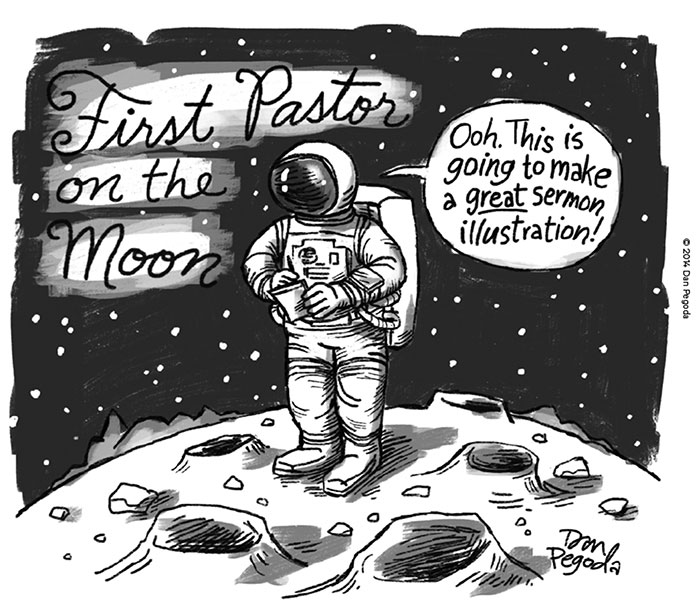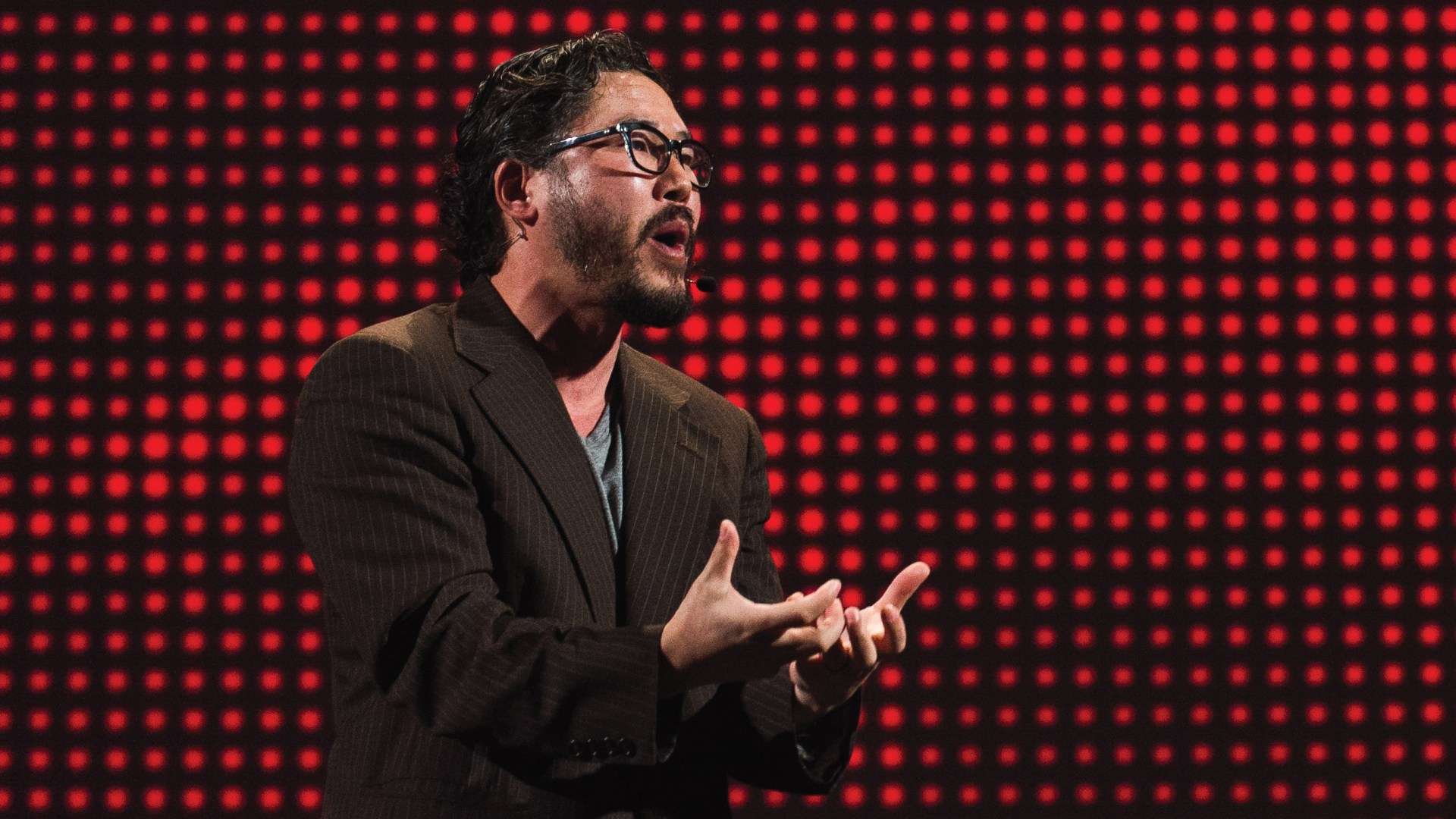In this series: Helping People Grow in Maturity
Jesus told his followers, Go and make disciples of all nations. Pastors know well that no two people under their care are in the same place spiritually. Making and growing disciples involves taking peoples spiritual temperature, helping them confront and address sin, guiding them to develop a love for Scripture, and much more. This Common Challenge covers ways you can introduce, initiate, and instruct the entire congregation into the life of allegiance to Christ.

Natasha Sistrunk Robinson knows a thing or two about how leaders are made—and she believes we're missing out if we focus our efforts on one-on-one mentoring. Since graduating from the Naval Academy, she has served as an officer in the United States Marine Corps, worked in the Department of Homeland Security, earned her Master of Arts in Christian Leadership from Gordon-Conwell Theological Seminary, and founded the women's mentoring ministry at Cornerstone Baptist Church in Greensboro, North Carolina. Robinson spoke with BuildingChurchLeaders.com managing editor Laura Leonard about her vision for leadership development, her theological framework for mentoring, and the benefits of mentoring in a small group setting.
How did you end up starting a mentoring ministry?
I was mentored by a woman in college. I went to the Naval Academy, where mentoring is a built-in component of leadership. There was an expectation for the sophomores to mentor freshmen, the juniors to mentor the sophomores and freshmen, and so on. As I was being mentored, I was also connecting with other young Christian women who were either new to the faith or didn't have a faith community. When I did a Bible study with a woman who was discipling me, she would often give me her notes and we would review them in the time that we spent together, and then I would take those notes and do the same study with the girls who lived in my dormitory. That's what started it all.
Then, a few years ago, I was leading the women's small groups in my church. I saw that women were thirsty. They wanted more from God and more from the church. They didn't mind being challenged. That was the foundation of the mentoring ministry.
In your military background mentoring relationships were so intentional. What could the church learn from that model?
The military is its own culture. We have our own language, our own attire, our own rules and regulations—it's something people who aren't in the military could never understand. In the church, too, there should be a certain way that we live as people of God, and people who have never been in it should think, Whoa, what is that? I don't really understand it. This whole idea of community and dwelling with people is a passion, desire, and understanding that I've carried over into the church. I have a prophetic conviction that we can do better.
Mentoring is an essential part of leadership. In other words, you can't call yourself a leader if you're not raising up leaders. That's what leaders do in the military, because eventually somebody has to get promoted. It's not a question of whether they're going to leave; it's a matter of when. And it needs to become a natural part of what we expect from Christian leaders and a church. For whatever reason, I don't see enough people being trained and raised up to lead. At best we ask them to volunteer for a ministry, or to serve at certain events, and we may give them a one-time training, or a few weeks of classes, and then we let them go. There is no long-term teaching and training so that leaders can grow in maturity and have the accountability necessary to develop the character of a leader.
How can churches prepare both mentors and mentees for a good mentoring relationship?
I look at mentoring as intentionally making disciples—mentoring for God's kingdom purposes. So the mentor has to have a theological framework for mentoring. And I believe that most Christians don't. Ask them, "What does it mean to be a disciple of Christ?" Then, "What does it look like to make a disciple of Christ?" And of course the nail on the coffin is, "Are you doing it?" But even before we get to that last question, most lay people don't have adequate responses.
What does this theological framework look like? Why group mentoring over one-on-one?
There can be extreme value in one-on-one mentoring relationships. I've experienced it in my own life. More importantly, I see it in the Bible. But in the Bible when there is a one-on-one mentoring relationship, it is by divine appointment and for a divine purpose. Let's look at a few of our examples: Moses and Joshua, Elijah and Elisha, Paul and Timothy, Paul and Titus. God had a very particular purpose for those relationships. Moses was laying the foundation so that Joshua could be the leader to the next generation, to take them into the Promised Land. Elisha was going to carry the prophetic mantel of Elijah. In addition to teaching Timothy and Titus how to plant churches, Paul was teaching them how to be good Christian leaders. One-on-one mentoring relationships are important, and they will happen organically once God makes it clear that's what you're supposed to do, and he'll have a very specific purpose for those relationships. I would not advocate that a third-party try to randomly put two people together and hope that's going to be a divine appointment.
I follow the small group model for two reasons. First, I see it in the Bible, specifically in Jesus with the 12 disciples. He discipled them, taught them, trained them, mentored them in the context of a group. He spent most of his time with the 12, and he spent even more time with the three. There are very few conversations recorded in the Gospels between Jesus and one disciple. Not to say he didn't have them; he did. But the Gospel writers consistently show him teaching them, correcting them, and leading them as a group.
Then he sends them out two-by-two, never alone. This adds a dynamic of peer-to-peer mentoring. Jesus sent them out two-by-two in case something went down. In the military we call that the buddy system. When you deploy on a ship and you get to a duty station or port in another country, you don't go anywhere alone; you go with a buddy. In a mentoring small group, your learning is going to be enhanced because you're not just hearing the philosophy of one person, rather you are drawing near to God by sharing in the diverse experiences of the group.
What are some of the things that sabotage a mentoring relationship? How do you prepare people to avoid them?
Two come to mind right away. One is not setting clear expectations and boundaries up front. For a mentoring relationship to work there has to be a mutual commitment. If the mentor is the only one invested, they will get very frustrated when the mentee is not interested. Likewise, if the mentee comes with lots of uncommunicated or unrealistic expectations that the mentor fails to meet, that's a recipe for disaster.
The other is if the mentor is not what Peter Scazzero refers to as emotionally and spiritually healthy. An unhealthy mentor may be able to mask or cover up their emotional issues for a while, but once they get into an intimate relationship like mentoring, their issues spill out. Say for example, the mentor is in a bad marriage, and frustrations with their own marriage are projected onto the younger mentee. The mentee may be single, and as a result of this negative experience, she may draw unhealthy conclusions about men or marriage. Maybe the mentee has a good marriage, but suddenly she begins taking up offenses for her mentor. Now she's mad with her own husband for something he didn't even do! This is a problem and a natural occurrence when people are allowed to volunteer for leading others without first having the proper screening and training. If we take the time to cultivate relationships and train potential leaders, we are more likely to notice red flags and get them help before launching them to lead others. It is okay to go to a potential mentor and say, "I love you, but you're not quite ready for this. Let's get you into marriage counseling and then we'll see how God works his healing in your life." This whole idea that we've got going in the church—volunteer and we'll just let you do it—has got to stop. It's detrimental.
So accountability needs to be part of ongoing training?
Absolutely. When I started the mentoring ministry, my ministry partner and I trained the potential mentors every other week for six months before sending them to mentor others. Once they got started with their mentoring groups, we continued to meet as a leadership team once a month for intercession, soul care, sharing, fellowship, question and answers, and discussing best practices. Why did we do that? We did it because it is a wise and encouraging practice. For long-term commitments, training has to be ongoing.
What is your vision for small group mentoring in the church?
From the very beginning, God said it is not good for a man to be alone. Yet I have observed that we have a lot of people suffering in silence in the church. People who are supposed to be redeemed are living as fallen. People who are supposed to be walking in freedom are living as slaves to the world. We can do better at making disciples. When we mentor people and intentionally make disciples in this way, we also create safe places for people to learn and grow, to love and be loved well. As those people become mature, they go to share and do for someone else what has already been done for and shared with them. This is God's work of grace, and these are the communities we need to see in a church.













